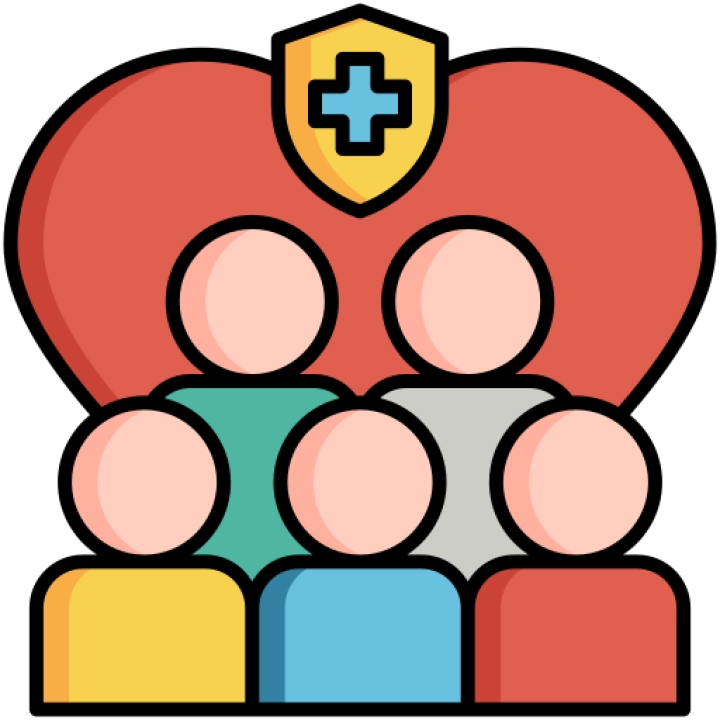College: Graduate School of Health Sciences
This major focuses on promoting and protecting the health of populations through education, policymaking, and research. Students develop skills in epidemiology, biostatistics, health policy, and community health. Graduates are prepared to work in public health agencies, nonprofits, research institutions, and healthcare organizations.
Learning Objectives:
- Understand the fundamentals of public health, including epidemiology, biostatistics, and health policy.
- Develop skills in conducting public health research, data analysis, and program evaluation.
- Learn techniques for designing and implementing health promotion and disease prevention programs.
- Explore principles of health equity, social determinants of health, and community engagement.
- Analyze and interpret public health data and policies.
- Develop critical thinking, problem-solving, and leadership skills for effective public health practice.
Main Curriculum:
- Introduction to Public Health - Overview of key concepts, principles, and practices in public health. - Basics of epidemiology, biostatistics, and health policy.
- Epidemiology - Principles of epidemiology, disease surveillance, and outbreak investigation. - Techniques for conducting epidemiologic studies and analyzing health data.
- Biostatistics - Fundamentals of biostatistics, statistical methods, and data analysis in public health. - Techniques for applying statistical methods to public health research and evaluation.
- Health Policy and Management - Principles of health policy, healthcare systems, and management. - Techniques for developing, implementing, and evaluating health policies and programs.
- Environmental Health - Basics of environmental health, toxicology, and risk assessment. - Techniques for identifying and mitigating environmental health risks.
- Health Promotion and Education - Principles of health promotion, health education, and behavior change. - Techniques for designing and implementing health promotion and education programs.
- Community Health - Principles of community health, assessment, and engagement. - Techniques for conducting community health needs assessments and developing community-based interventions.
- Global Health - Principles of global health, international health systems, and global health challenges. - Techniques for addressing global health issues and promoting health equity worldwide.
- Practicum in Public Health - Real-world experiences in public health, including observations, internships, and practical projects in public health agencies, nonprofits, or research institutions. - Application of acquired skills in practical public health scenarios.
- Capstone Project in Public Health - Comprehensive project applying skills in public health research, program evaluation, or health policy analysis. - Presentation of a well-developed project, program plan, or policy analysis in public health.
Assessment Methods:
Epidemiological studies, biostatistical analyses, health policy papers, environmental health reports, health promotion plans, community health assessments, global health projects, practicum reports, capstone projects, group projects, and internship evaluations.
Recommended Textbooks:
- "Epidemiology in Public Health Practice" by Lloyd F. Novick et al.
- "Biostatistics: A Foundation for Analysis in the Health Sciences" by Wayne W. Daniel.
- "Health Policy and Politics: A Nurse's Guide" by Diana J. Mason et al.
- "Environmental Health: From Global to Local" by Howard Frumkin.
- "Planning and Evaluating Health Promotion" by Ruth Wolfer et al.
- "Community Health Assessment and Planning" by various authors.
- "Global Health 101" by Richard Skolnik.
Prerequisites:
Basic knowledge of biology, statistics, and healthcare systems. Suitable for students interested in public health, epidemiology, and health policy.
Duration of the Major:
Typically 4 years for a bachelor's degree, including coursework, projects, practicum, and internships. Additional specialized training or a Master of Public Health (MPH) degree may be required for advanced practice.
Certification:
Graduates may earn a degree in public health and pursue additional education or professional certifications, such as a Master of Public Health (MPH) or a Certificate in Public Health (CPH).
Target Audience:
Aspiring public health professionals, epidemiologists, health policy analysts, community health workers, and individuals seeking to work in public health agencies, nonprofits, research institutions, and healthcare organizations. This major equips students with the skills and knowledge needed to excel in public health, supporting careers across various healthcare and public health institutions.

